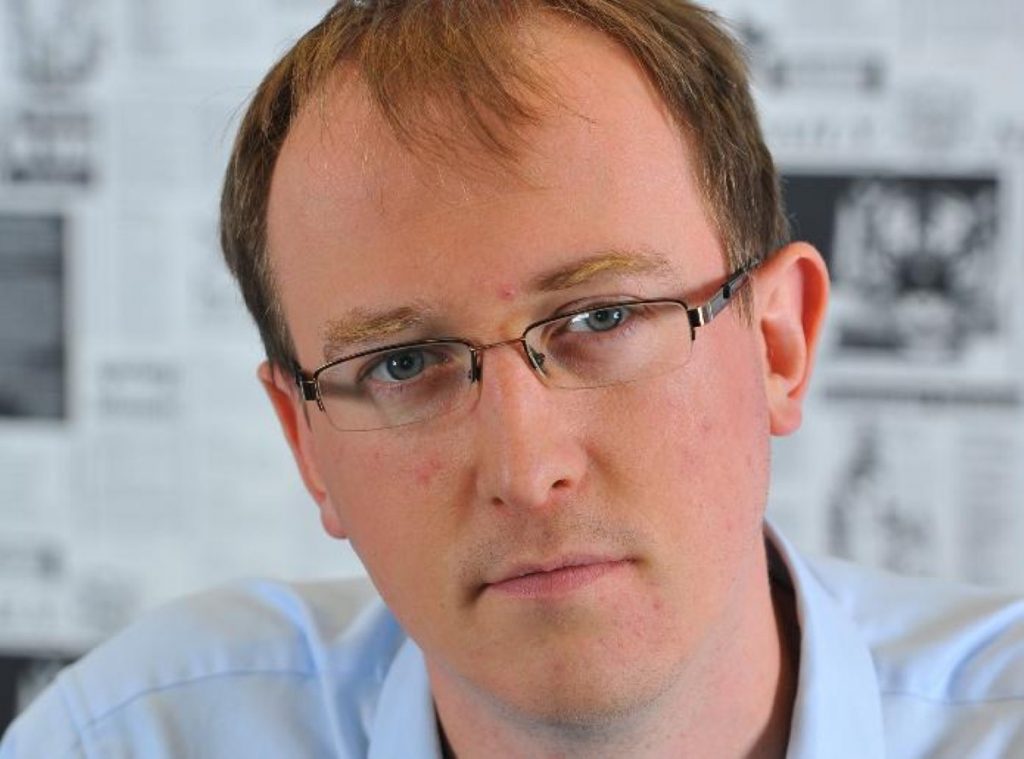Comment: Cameron just can’t get over his ideology phobia
When it comes to spending cuts and the Tories' rapacious desire to strip back public spending, the worst possible word to mention is 'ideology'.
This is why David Cameron will be guilty of a baffling contradiction in terms in his speech to a West Midlands manufacturing plant today.
He'll stand up and explain that what his government really wants to do with people's money is something based on the principles of the party he leads. And then insist this has nothing to do with ideology, of course.
"This isn't about some ideological commitment to a smaller state," Cameron will insist. "It's actually about our values."


Somehow, according to Cameron, a party's economic values and its ideological perspective are different things.
Perhaps his reluctance to admit there's not the slightest difference between them has something to do with ideology's very bad reputation.
Summing up 100 years of suffering in a nutshell goes something like this: Some bad people got some bad political parties going. It worked out badly for everyone involved.
Nowadays 'principles' and 'values' are acceptable substitutes. Whereas ideology, on the other hand, is laden with connotations of the kind of dogmatic, unmoving politics of yesteryear which made the 20th century so miserable.
The danger for Cameron and the Conservatives is that if he talks about ideology he'll be presented as a modern-day Margaret Thatcher, determined to ruthlessly shrink the size of the state.
The prime minister fears that the word is associated with a loss of prudence. Values and principles are compatible with a compromising, democratic politics of give-and-take pragmatism. Ideology, by contrast, is associated with an abandonment of prudence in the unyielding pursuit of policies, regardless of the side-effects.
Politicians instinctively know this – and use the heavily-laden word to their advantage whenever they can.
Hence when shadow education secretary Tristram Hunt wanted to make a splash with his first big attack on Michael Gove, he talked about the opening of an Islamic free school being evidence of "an ideological experiment out of control".
When Tony Blair spoke out against the perpetrators of the 2005 London bombings, he talked about an "evil ideology" that had to be confronted.
Not the sort of word you want to be associated with.
But fearing the consequences of admitting that the Tory approach is ideologically driven comes at a cost.
And this is the dilemma which Tory election campaign strategists will have to wrestle with in the coming months.
Right now the mainstream parties seem indistinguishable to voters. So isn't a genuine difference between them something to be celebrated rather than hidden?
Today Cameron will outline the moral case for governments having "money we can give back to you".
He will present a politically motivated economic policy based on a firmly held belief in something.
So why can't he take the credit for this? After all, the evidence from today's speech is that he desperately wants to.
For years the prime minister has presented the coalition's economic approach as a pragmatic, necessary response to Labour messing up the public's finances.
What Cameron wants to avoid now, he'll say, is the impression that the Tories and Lib Dems have been nothing but a "turnaround team of accountants rescuing a failing business".
He'll concede that ministers are guilty of having "given the impression that we're just about fixing problems rather than changing things for a purpose".
With the European elections now just two months away, and the 2015 general election now quickly appearing over the horizon, it's about time.
So today's effort is the result. One of Cameron's most ideological speeches yet contains a heartfelt exposition of Tory principles and a firm denial that this has anything to do with ideology.
The audacity of it is astounding. It's like a robber steadfastly denying they're stealing from you as they hold you at gunpoint and stuff the swag into their sack.
Cameron is being deeply ideological, but doesn't want you to think that what he's doing to you is being done in those terms.
It says something fundamental about our political culture that the people who lead us must first convince, or at least distract us away from, the idea that their leadership is based on a coherent worldview.
In the 21st century, we're governed by technocrats and bureaucrats. This coalition has complained about the dominance of the civil service, but maybe that's what you get when the main parties are virtually identical.
Maybe "turnaround accountants" is all Cameron's government really are. If they're actually something a bit more than that, he ought to have the guts to come out and say so.
Alex Stevenson is parliamentary editor iof Politics.co.uk
The opinions in Politics.co.uk's Comment and Analysis section are those of the author and are no reflection of the views of the website or its owners












